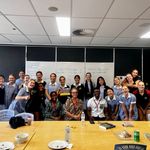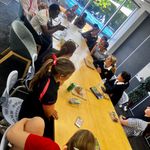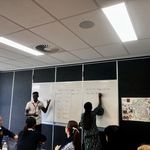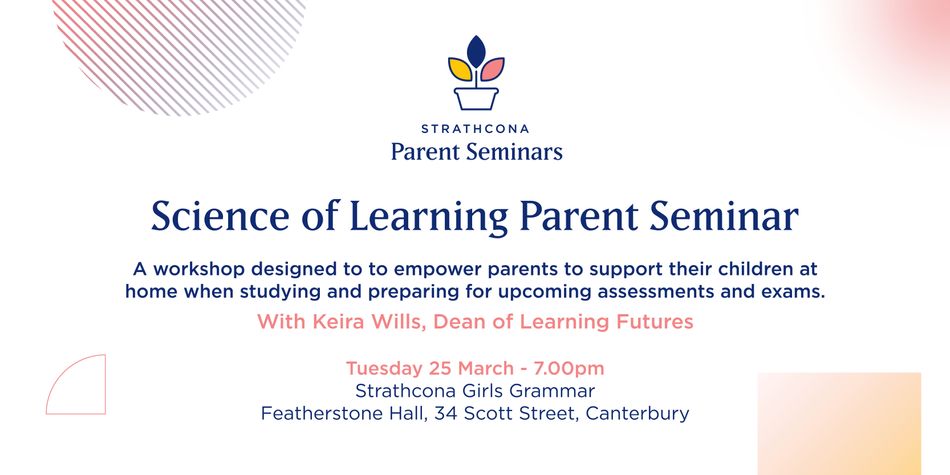Term 1, Week 7, 2025 - Happily 13 Mar 2025
Upcoming Events
 Loading events...
Loading events...
Message from the Principal

As Week 7 of Term 1 draws to a close, the word happily, embedded in our School motto Fortiter, Fideliter, Feliciter (Bravely, Faithfully, Happily), invites us to consider what it truly means to create a joyful and fulfilling school environment.
Our founders were remarkably forward-thinking in choosing happiness as one of our guiding principles, understanding that a thriving educational environment is one where joy, connection, and well-being are not just encouraged but are essential to success. Their vision of happiness was never about fleeting moments of joy but about fostering a lasting sense of purpose, engagement, and growth that would shape the experience of every student, teacher, and family in our community.
Modern educational research affirms this wisdom. UNESCO’s Why the World Needs Happy Schools report underscores that schools where students feel a sense of belonging, purpose, and joy in learning produce better academic outcomes and more resilient, creative, and socially engaged individuals. A happy school is not simply one where smiles are frequent but one where students feel safe to take risks, supported to grow, and empowered to contribute meaningfully to the world. This extends beyond students; studies show that teacher well-being is directly linked to student success. When educators feel valued, motivated, and connected to their work, they are better equipped to inspire and nurture those they teach. Likewise, the entire community flourishes when parents feel engaged and confident in the school’s direction.
The report further emphasises that happiness in schools must be intentionally cultivated through positive relationships, a sense of purpose, and meaningful engagement. When students feel connected to their teachers and peers, their motivation and academic success improve. Likewise, when teachers experience a sense of autonomy, professional respect, and opportunities for collaboration, their enthusiasm for teaching strengthens. A school that prioritises well-being ensures that its culture nurtures these relationships, making happiness an aspiration and a daily reality.
However, it is essential to acknowledge that happiness is not about always being joyful. Life is rich and meaningful, precisely because we experience the full spectrum of emotions: happiness, sadness, anger, disgust, frustration, excitement, and moments of doubt. Each of these emotions has a purpose. We only truly appreciate joy because we have known sorrow; we grow stronger through challenges; we build empathy through shared struggles. A truly happy school is not one that suppresses difficult emotions but one that provides a supportive environment where they can be understood, processed, and transformed into growth and learnings for life.
Our holistic approach to wholebeing is at the heart of what we do at Strathcona. Our focus is not simply on academic achievement but on fostering an environment where intellectual curiosity and emotional resilience go hand in hand. Through engaging classroom experiences, a rich co-curricular program, an emphasis on character and values, and a strong and vibrant supportive community, we strive to build a School where happiness is not a result of success but its very foundation.
To read more visit: Why the world needs happy schools: global report on happiness in and for learning | Health and Education Resource Centre
Message from the Dean of Students

Happily
Having been part of the Strathcona community for many years, I have seen firsthand how happiness shapes our students' experiences and learning.
It is woven into the fabric of our daily life, evident in the friendships formed, the confidence built, and the memories made. Our school motto—Bravely, Faithfully, Happily—encapsulates the spirit of our students. While faith and bravery ground them in resilience and integrity, it is happiness that brings vibrancy to their journey.
The UNESCO Happy Schools Framework reminds us that education should be more than just academic achievement; it should cultivate a sense of joy, belonging, and purpose. A happy school fosters positive relationships, well-being, and a love of learning—principles that align closely with our Wholebeing approach and the Me-We-Us framework, guiding our commitment to student care and holistic development.
Happiness at school isn’t just about grand moments; it’s found in the small, everyday joys—the friendly greetings in the corridors, a teacher’s encouraging words (or misplaced joke), the satisfaction of mastering a new skill. I see it in the laughter shared in the locker rooms, the camaraderie of House challenges at lunchtime, and the conversations in the canteen while lining up for a muffin at recess. It’s the joy of collaborating on a group passion project, decorating a friend’s locker for their birthday, the pride of presenting in assembly, and the comfort of sitting on the courtyard couches, sharing stories and plans for the future. Our students find happiness not just in structured activities but also in spontaneous moments of connection and discovery that shape their school days.
A key part of this culture is student voice and student-led initiatives. Our girls are not just participants in school life—they are active creators of it. Whether organising House activities, planning themed days, or leading community projects, they take on these opportunities with passion and purpose. Their leadership is not just about responsibility; it is about bringing joy to others, strengthening connections, and shaping a school where everyone feels a sense of belonging. The happiness they find in creating these moments, big or small, is a reflection of the pride they take in their school community.
We intentionally work with our students to create an environment that cultivates these moments, whether in the classroom, on the sporting field, on the river, in the drama studio, or during Wellbeing Wednesdays, where connection and fun take centre stage. Beyond the classroom, students find happiness through House events, music ensembles, PAF performances, debating teams, leadership opportunities, and service. Some experience the thrill of representing their school in competitions, while others find joy whilst quietly reflecting in the chapel, the teamwork of e-sports club or the creativity of art and design projects.
When students feel happy, they feel safe to take risks, ask questions, and grow. As educators, we are committed to nurturing this environment, knowing that happiness is not just a fleeting emotion but a foundation for lifelong learning and success.
As we reflect on what it means to live happily at Strathcona, we will continue to cherish the joy found in learning, the connection found in friendships, and the moments that make our school a truly special place to learn and to work.
News from Careers

Career News
Items in this Career News include:
- Dates to Diarise in Term 1
- Victorian Careers & Employment Expo 2025
- ANU Applications for 2026 Entry
- News from La Trobe University
- Bendigo Campus Talk & Tours
- Diploma of Rural Health - Monash Business Explorer Program 2025
- Newly Revised Courses for 2025 at RMIT University
- Computer Science Degrees in Victoria in 2025
- Information Technology Degrees in Victoria in 2025
- Snapshot of Deakin University in 2025
- Snapshot of Deakin – Waurn Ponds Campus in 2025
Message from the Strathcona School Psychology Team

Parent Seminar Series 2025
Thank you to all the parents that attended the first in our Parent Seminar Series for 2025 on Monday evening, we have had some great feedback about the usefulness of this topic. Rebecca Sparrow presented an engaging and insightful session that covered tips for supporting girls in making and understanding friendships. These included:
- Choosing wisely who you share stories with. Sometimes girls share personal information about themselves as a way of bonding. This is often done with people they don’t know well, and they can’t be sure that information shared will be kept private. Thinking about how well they know the person and past experiences with them and then asking whether the person “has earned the right to hear my story?” is a way of carefully considering what and who to share information with.
- Understanding that conflict is normal in friendships, but drama is a choice. Rebecca highlighted that it’s a myth to think friendships are effortless, they require work and for us to show up for the good, hard and boring moments. Most importantly, they require us to own our impact and be accountable and that this is what makes a friendship more robust through difficult times.
- Boundaries are everything! Rebecca noted that friendships are only as healthy as your boundaries. Being clear about boundaries for privacy, activities, time and conversations means your daughter will know if someone has overstepped them as she will be upset with them. This gives her an opportunity to state what the issue is so that the friendship can move forward with this respectful understanding of what the needs and limits are for everyone involved.
- Drama cyclones are exhausting, and gossip is a red flag. If someone upsets your daughter encourage them to discuss it with the person not behind their back. If others are gossiping encourage them to step away from the cyclone and not into it. When others are starting drama with gossip they can offer an alternative kind version of the person, change the topic, or make an excuse to leave.
- Let it go. People will annoy and bother your daughter, and she will have a calmer experience at school if she focuses on herself and people that like her. Rebecca emphasised that power comes from being someone that is not easily offended and able to let things go.
- You don’t own your friends. Being possessive is a huge turn off and makes you look needy. Friends need to be able to be friends with other people. Similarly, your daughter is not on-call to her friends, and she is allowed to have other friends and be involved in activities without them.
- Being at school is playing the long game, so don’t cut what you can’t untie. Rebecca explained that research has shown that teens who have the best experience at school have lots of connections. This can be easily achieved by having friends but being kind and friendly to all.
The link to the webinar for those that missed the session or would like to watch it again can find it here: https://www.dropbox.com/s/hybbac8xak9x6uh/6LessonsInFriendship.mp4?dl=0
We look forward to the next Parent Seminar on Monday 12 May at 7pm, presented by Dr David Collins: 7 Things your Child/Teenager Wants you to Know.
Kerri Rhodes and Sharon Turner
Strathcona School Psychologists
Senior School News

The School of St Jude
On Friday 28 February, Gemma (Founder of School of St Jude) and her team came to Strathy to talk about the School of St Jude during period 4 Feliciter. After this, the girls heading to Tanzania in April had lunch with Gemma and her team, where they were able to ask questions, learn some Swahili and hear about the amazing things they will be part of when they are at the School of St Jude.
Junior School News
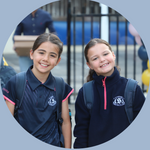
Events

Business Networking Series
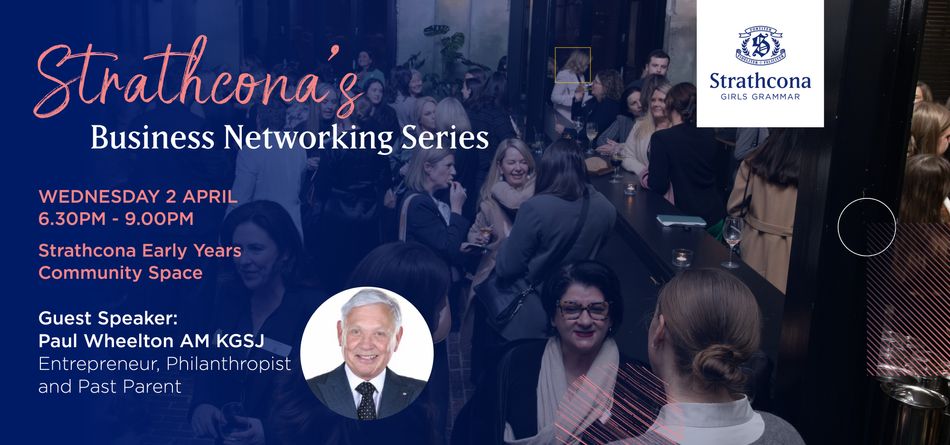
Connect with like-minded business professionals in the Strathcona community, hear from guest speaker, Paul Wheelton AM KGSJ, and share your knowledge, expertise, and passion for your industry while expanding your professional network at Strathcona's first Business Networking Series event for 2025.
Spaces for this event are limited, so we encourage you to secure your spot early. Tickets are available for $25. Click here to book.
Dancing Under the Stars 4

The SFA warmly invite you to join them for a special evening, Dancing Under the Stars 4, celebrating community and connection. To find out more and to book tickets, please click here.
Strathy Highlights
Take a look at what's been happening recently at Strathcona
Click here to watch.

